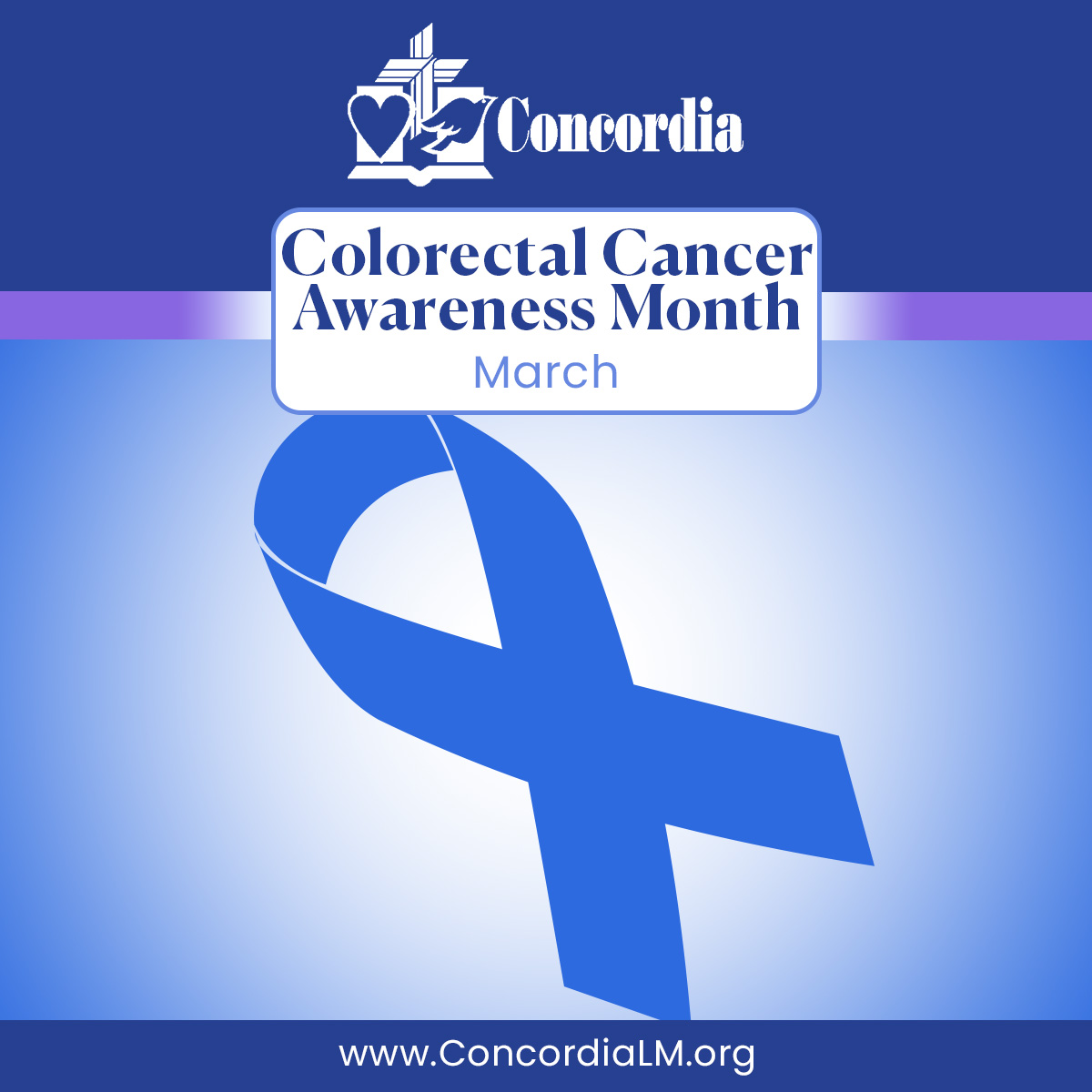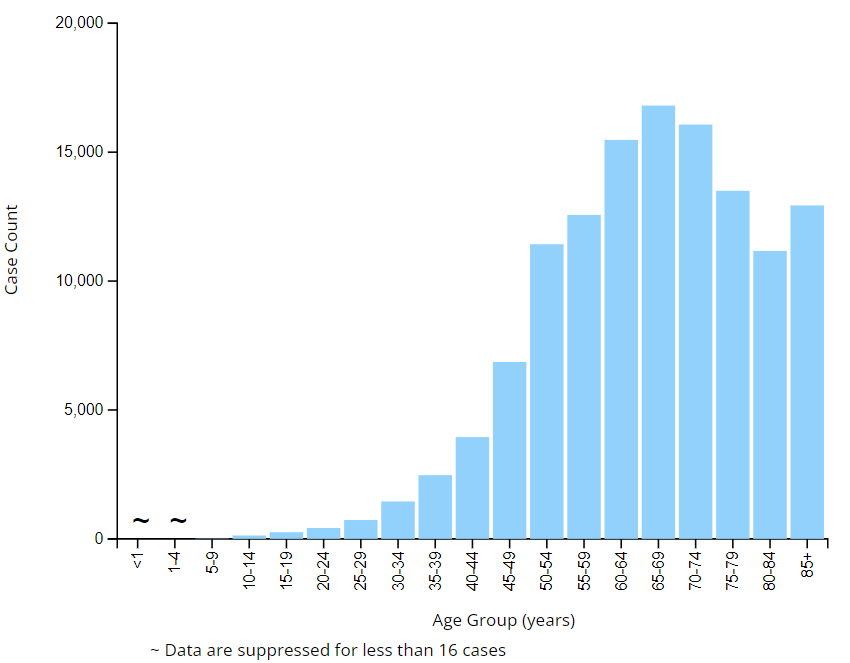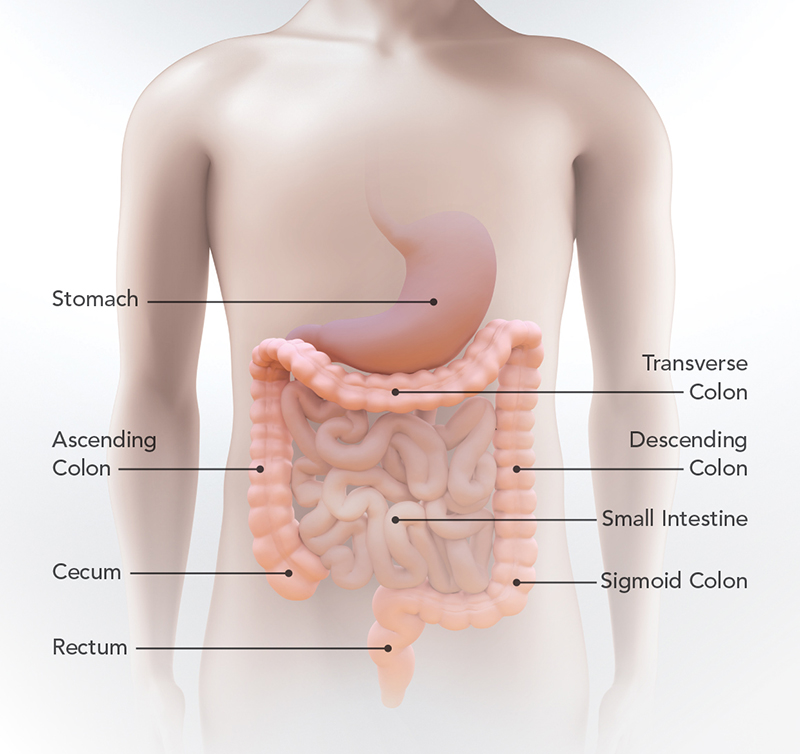Colorectal Cancer Awareness Month: Stay Vigilant

March is Colorectal Cancer Awareness Month, bringing renewed attention to a disease impacting hundreds of thousands of people in the U.S. each year.
Recent news surrounding colorectal cancer focused on studies about new trends. The trend shows new case counts rising in younger people and declining among the older population. However, that may paint a misleading picture and create complacency in conversations surrounding a serious form of cancer.
What’s New?
According to the American Cancer Society, colorectal cancer incidence rates since the mid-90s have shown a 1 to 2% growth in new cancer cases among people younger than 55. In contrast, new case rates from 2011-2019 showed a 1% decrease in new cases among people 65 and older.
Many media outlets reported on this troubling new trend. They emphasized the increased risks for the younger population. While certainly concerning, the trend seen in older adults, those 65 and older, should not be seen as a great boon.
According to the Centers for Disease Control’s latest data (2020,) the highest number of new colorectal cancer cases (16,806) appeared in the 65-69 age range. The next highest number of new cases (16,069) involved people between the ages of 70-74.
Colorectal cancer continues to be one of the three most diagnosed forms of cancer each year, and its presence in the senior living population makes it significant to senior care communities, like Concordia.

RELATED: Exercise for Healthy Aging
What is Colorectal Cancer?
Colorectal cancer causes cells in the colon or rectum to grow out of control. Colorectal cancer is often referred to as either colon cancer or rectal cancer, depending on where exactly the cancer forms.
Like many cancers, the cell accumulates into abnormal growths called polyps, a type of tumor. Not all polyps are cancerous. About 5 to 10% of colon cancers start as polyps, according to Roswell Park Comprehensive Cancer Center.
Colorectal cancer also tends to develop much slower than other forms of cancer. According to the Moffitt Cancer Center, a polyp can take between 10 to 15 years to turn into cancer.
The symptoms of colon cancer include but are not limited to:
- Frequent diarrhea and constipation
- Blood in stool
- Losing weight without trying
- Weakness
- Tiredness
- Stomach cramping and pain
- Feeling the urge but unable to have a bowel movement
Not only are these symptoms the type that people don’t like to talk about openly, but people often experience these same symptoms in other benign conditions that could mask the presence of colorectal cancer.

How is It Detected?
Colorectal cancer conceals itself in a fairly lengthy organ with lots of twists and turns. As with many cancers, early recognition and diagnosis are key to ensuring favorable treatment outcomes. Current best screening practices recommend colonoscopies as the best way to see what’s happening in the intestines.
For their recommendations to patients, the team at Concordia Physician Practice in Cabot, Pa., follows the latest standards set by the American Cancer Society regarding colonoscopy frequency.
- Adults aged 45-75 should receive a colonoscopy screening every 10 years.
- Adults aged 76-85 should receive a colonoscopy screening based on conversations with their healthcare provider.
- Adults aged 85 and older are not recommended to screen through colonoscopy.
There are other, stool-based tests available for colorectal cancer screening. However, people should discuss these options with their doctor before trying them.
RELATED: March is National Nutrition Month: A Q & A with a Registered Dietitian
What Are Treatments for Colorectal Cancer?
As with many cancers, treatment of cancer identified in the early stages may resolve with simple surgery, ranging from the removal of a single polyp to large sections of the intestine.
In older patients, post-operative care, like short-term rehabilitation stays, help the patients recover and monitor their condition. Concordia at Bethlen, Concordia of the South Hills and Harmony Physical Rehabilitation are a few examples of Concordia locations offering short-term rehab.
However, not all cases are caught early. If the cancer is more involved, patients may need systemic treatments, including chemotherapy and targeted drug therapy. While these patients may go to specialized facilities for chemotherapy, they fight the rest of their battle at home.
Home health care companies like Concordia Visiting Nurses offer some assistance with medication management, vital monitoring, colostomy management and other in-home medical care.
It takes a lot to battle cancer, especially as people age. As people tire, things like dressing, bathing, transportation and record keeping can be more difficult or forgotten. That’s where home care services, such as Concordia Private Care come in, helping patients with activities of daily living in their home.
Of course, in some cases of late-stage colorectal cancer, the goal shifts toward comfort over recovery. Hospice care services provide a peaceful, stress-free environment to live out their final days. Concordia’s Good Samaritan Hospice, Concordia Hospice of Washington, Concordia Home Health and Hospice of Bethlen and Concordia-IRMC VNA specialize in this type of care.
Concordia Cares
Colorectal cancer affects many people every year, and Concordia hopes to lend a helping hand in any way it can through its many services.
Click here to learn more about our location-based care levels or home and community services.
Or, if you or a loved one are looking for help near you, click here to visit our overview of locations.
You can also call our headquarters at any time to learn more information at 724-352-1571 or message us through our online contact form.
Get Updates From Concordia
There is always a LOT happening at Concordia! Would you like to stay up-to-date with our news and events? Sign up for our monthly e-newsletter here.
